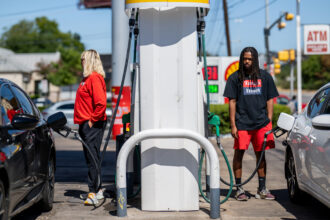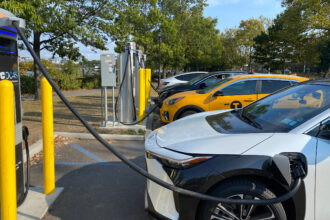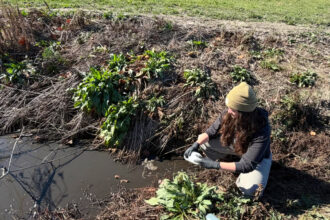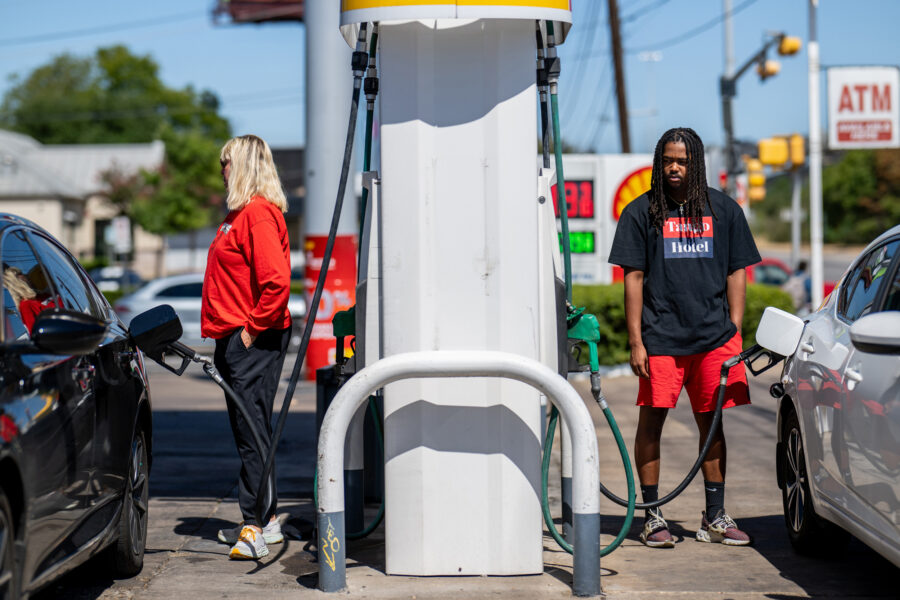Push and Pull in Senate May Recast Climate Bill (Washington Post)
President Obama’s climate-change legislation begins a daunting march through the Senate today, with supporters acknowledging they are as many as 15 votes shy of victory and well aware that deals to attract more votes could erode the bill’s environmental objectives.
India: Developed Nations Responsible for Climate Change (Bloomberg)
Developed countries must bear “historic responsibility” for industrial emissions of greenhouse gases they have produced, India’s Prime Minister Manmohan Singh said ahead of climate change talk at the G8 meeting this week.
Plan Floated to Target Individual Carbon Emitters (AFP)
U.S. researchers have proposed a new strategy to tackle the global climate dilemma: Target the biggest polluters in a country, who also tend to be the wealthiest individuals, and get those individuals living beyond the cap to reduce their carbon footprint.
Coal Industry Sees Life or Death in Senate Climate Debate (New York Times)
Industry advocates and independent analysts say coal has few options for a sustainable future. "Unless they come up with a breakthrough technology to capture carbon and store it, coal is dying," said Kenneth Green of the conservative American Enterprise Institute.
Cello Energy Leaves 50M-Gallon Gap in Feds’ Ethanol Targets (Earth2Tech)
What’s bad for Cello Energy, the Khosla Ventures-backed startup that an Alabama jury last week decided made fraudulent claims about its biofuels technology, could in a way be good for cellulosic ethanol — or at least open up new incentives for the fuel.
Auditing Firms Among Climate Bill Winners (Climate Wire)
Having helped companies explore Europe’s labyrinth of greenhouse gas regulation, the Big Four auditing and accounting firms are moving quickly to build climate and carbon shops in the U.S. that could one day rival tax compliance and financial disclosure.
Study: Tropics Expanding Due to Climate Change (AFP)
Climate change is rapidly expanding the size of the world’s tropical zone, threatening to bring disease and drought to heavily populated areas, an Australian study has found. The study finds the tropics widened by up to 310 miles in the past 25 years.
Ban Ki-Moon’s Message to G8 Leaders (Guardian)
The summit in Italy is the start of a crucial 12 months, writes UN Secretary-General Ban Ki-moon. Political co-operation is no longer a mere nicety, but a necessity.
Europeans Seek G8 Pledge to Halve Greenhouse Gases (Reuters)
Italy, France and Britain are calling for major developing economies like China and India to sign up for a goal of halving the world’s greenhouse gas emissions by 2050 at this week’s G8 summit in Italy.
Duke Energy Files Plans for Carbon Storage Study (Business Journal)
Duke Energy Corp. has filed plans with the Indiana Utility Regulatory Commission for a proposed carbon dioxide storage project in Indiana. It plans to invest $121 million to experiment with storing the emissions in deep saline aquifers and depleted gas and oil fields.
Obama Nominates Heads of Mining Agencies (AP)
The Obama administration nominated officials to head two key agencies that oversee miners’ health and safety and environmental issues at surface mines. Environmental groups criticized the Office of Surface Mining Reclamation and Enforcement choice, Pennsylvania state official Joseph Pizarchik.
Cabinet Chiefs Headed to China to Boost Cleantech Exports (Reuters)
Commerce Secretary Gary Locke and Energy Secretary Steven Chu will travel together to China next week to boost U.S. clean technology exports.
ECOtality pulls $15M to build EV charging network in China (CleanTech)
Arizona-based ECOtality is breaking into the Chinese market with its technology to rapidly charge the batteries of electric vehicles. It plans to set up manufacturing for a network of charging stations across the country.
The Elusive Green Economy (The Atlantic)
It feels like 1977 all over again: economy in the doldrums, crisis in the Middle East, and a charismatic new Democrat in the White House preaching the gospel of clean energy. Can Obama succeed where Carter did not? Yes—but only if we’ve learned the lessons of three decades of failure.
About This Story
Perhaps you noticed: This story, like all the news we publish, is free to read. That’s because Inside Climate News is a 501c3 nonprofit organization. We do not charge a subscription fee, lock our news behind a paywall, or clutter our website with ads. We make our news on climate and the environment freely available to you and anyone who wants it.
That’s not all. We also share our news for free with scores of other media organizations around the country. Many of them can’t afford to do environmental journalism of their own. We’ve built bureaus from coast to coast to report local stories, collaborate with local newsrooms and co-publish articles so that this vital work is shared as widely as possible.
Two of us launched ICN in 2007. Six years later we earned a Pulitzer Prize for National Reporting, and now we run the oldest and largest dedicated climate newsroom in the nation. We tell the story in all its complexity. We hold polluters accountable. We expose environmental injustice. We debunk misinformation. We scrutinize solutions and inspire action.
Donations from readers like you fund every aspect of what we do. If you don’t already, will you support our ongoing work, our reporting on the biggest crisis facing our planet, and help us reach even more readers in more places?
Please take a moment to make a tax-deductible donation. Every one of them makes a difference.
Thank you,











